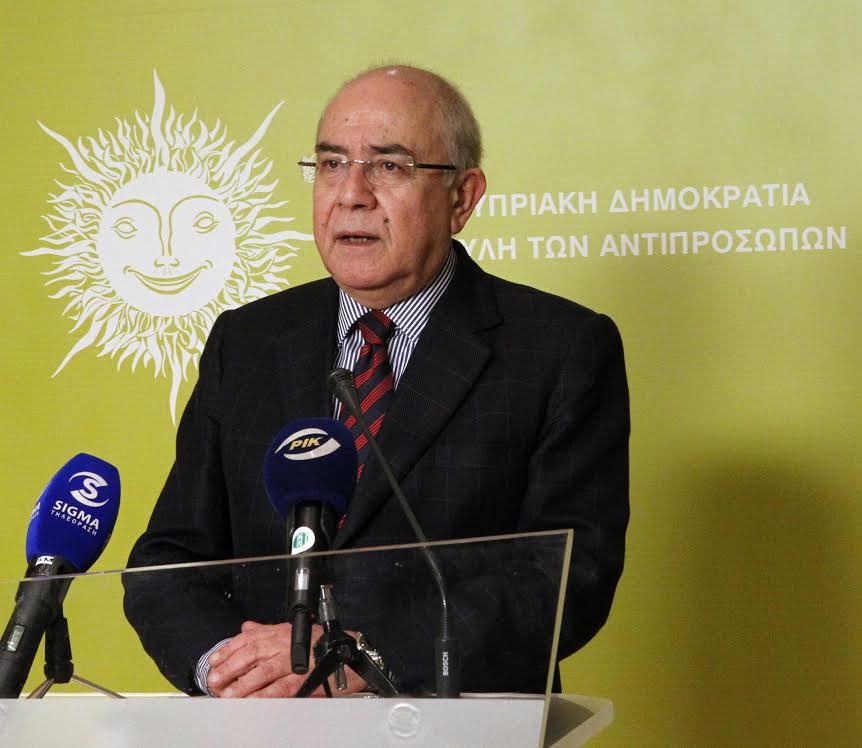Former House president Yiannakis Omirou called Greece’s recently declassified intelligence documents from the 1974 coup and subsequent Turkish invasion in Cyprus an important contribution to uncovering further details of what he referred to as the “great betrayal” of that year.
The National Intelligence Service of Greece (EYP) disclosed 58 documents this week that reportedly provide insight into the Greek perspective on events in Cyprus from July to August 1974.
According to Omirou, the documents reveal that the Greek intelligence agency – then under the military junta – had no prior knowledge of the coup’s exact timing, an indicator, he added, of the secrecy surrounding dictator Dimitrios Ioannides, who had limited his trust to a very small circle to avoid leaks.
“The lack of communication underlines Ioannides’ mistrust even of his own intelligence services, who were left uninformed about the coup’s specifics,” Omirou suggested.
“It appears that Ioannides trusted very few and avoided informing the intelligence services to prevent any risk of information leakage.”
Omirou added that the declassified documents show Greece had adequate intelligence on Turkey’s preparations in the period between the coup and the invasion.
He criticised the junta for failing to act on this intelligence, adding that it was fully aware of Turkey’s plans but chose not to take any action to defend Cyprus.
He also highlighted that instructions from the junta leadership discouraged Greek military forces in Cyprus from resisting the Turkish forces, claiming that the invasion was likely a mere exercise or demonstration of power, supposedly in reaction to the coup.
Omirou further commented on the influence of the junta on Greece’s intelligence apparatus even after its collapse. According to him, the recently declassified files reflect a continued control by the junta’s remnants, as post-invasion reports claimed that pro-Makarios in Cyprus posed a threat to Greek officers stationed there.
He suggested that the national unity government under Constantine Karamanlis did not fully control the situation in Greece in the immediate months following the regime change, allowing the junta’s influence to persist.
Omirou called on Greece’s defence ministry to release all relevant documentation, including orders and records of military units under Greek command in Cyprus during the coup and invasion periods.
He argued that making this information available would help shed light on any remaining unanswered questions about what he termed the “betrayal” of Cyprus.
Later on Thursday, historian and former political figure Takis Hadjidemetriou also provided comments on the declassified documents, criticising their lack of substantive information.
Hadjidemetriou referred to the documents as showcasing a “lack of depth” from the junta. According to him, the intelligence service’s reports lack critical dates and fail to offer new insights, calling the content “more political than informative.”
Hadjidemetriou suggested that many of the reports were filled with inconsequential details, such as records of women from the red villages in Cyprus protesting in front of the Greek embassy or the recruitment of 50 reserve police officers.
He then dismissed claims that Turkish forces were in disarray despite evidence of Turkish military preparations being well-documented by mid-June 1974, adding that no substantial communication was recorded regarding the coup on July 15, aside from a follow-up report that merely listed Sampson government officials.
Additionally, Hadjidemetriou said that following the Turkish invasion on July 20, documents recorded a “moderate” Turkish response, and by July 23 and 24, they assessed that Turkey was not determined to go to war with Greece, a statement he called “nonsensical”.
“The intelligence service’s reports are a testament to the junta’s lack of awareness and incompetence,” he said.
Reflecting on the content’s overall value, Hadjidemetriou commented that the reports held more anecdotes than actionable intelligence, adding that Greece’s National Intelligence Service (KYP) had failed to address critical matters effectively and instead operated on superficial or politically charged claims.
He suggested that more valuable information might lie in documents from the Greek embassy in Cyprus or from Grigorios Bonanos, the then-chief of the Greek armed forces, which remain undisclosed.







Click here to change your cookie preferences